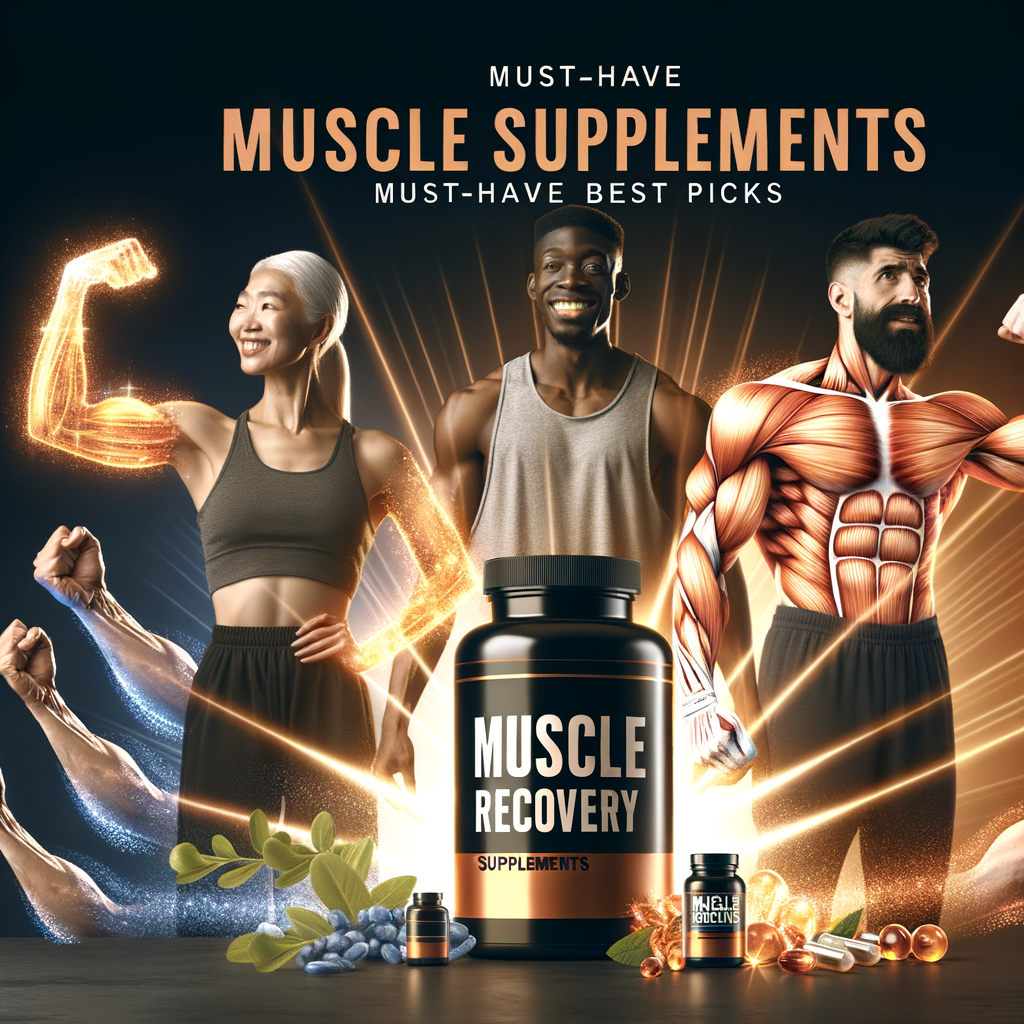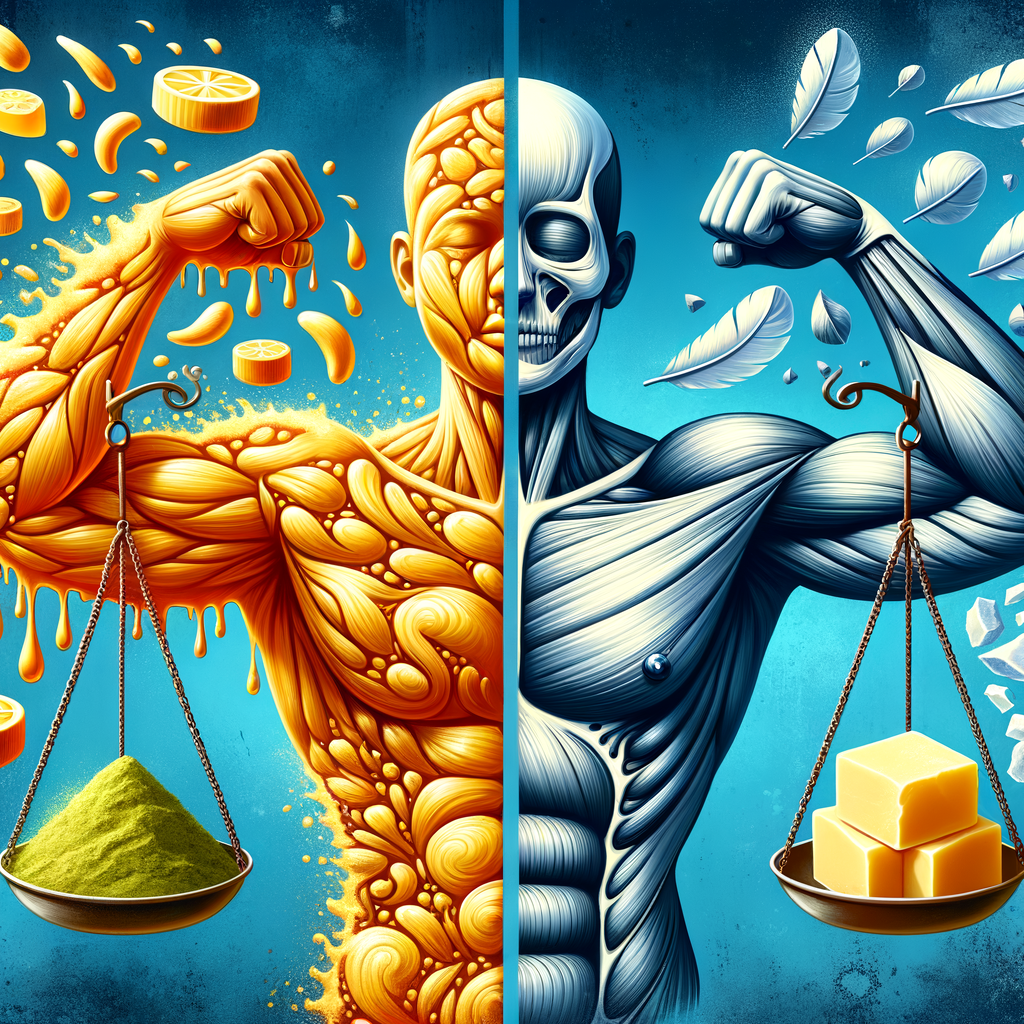Introduction
Muscle Recovery Supplements help you bounce back faster after workouts. They support repair, reduce soreness, and restore energy. In short, they let you train more often and with more intensity.
This article explains the best picks for recovery. You will learn the science, benefits, timing, and safe use. I also include stacks, sample routines, and evidence-based guidance you can apply today.
Why Muscle Recovery Matters
Recovery shapes results. Without proper recovery, gains stall and injury risk rises. Effective recovery helps muscle fibers rebuild stronger and more resilient.
Moreover, recovery affects long-term progress. Sleep, nutrition, and supplement choices work together. Using the right supplements can plug gaps and speed improvements.
Key Nutrients That Support Recovery
Protein supplies amino acids the body needs to rebuild muscle. Leucine plays a central role in signaling muscle protein synthesis. Therefore, getting enough protein and essential amino acids matters.
Carbohydrates refill glycogen stores used during training. Electrolytes restore fluid balance and prevent cramping. Finally, antioxidants reduce oxidative stress that slows repair.
Top Muscle Recovery Supplements — Overview
Below is a short list of proven supplements you should consider:
– Whey protein or plant protein
– Creatine monohydrate
– Essential amino acids (EAAs)
– Branched-chain amino acids (BCAAs)
– Beta-alanine
– Glutamine
– Omega-3 fatty acids
– Tart cherry concentrate
– Curcumin
– Magnesium and ZMA
Next, I will examine each supplement. You will learn how it helps and how to use it.
Whey Protein and Plant Proteins
Whey protein absorbs quickly and delivers amino acids fast. It triggers muscle protein synthesis and helps reduce soreness. Many studies support whey after resistance training.
If you follow a plant-based diet, choose a complete protein blend. Look for blends with pea, rice, and hemp. Additionally, aim for 20–40 grams per serving to maximize recovery.
Creatine Monohydrate
Creatine increases cellular energy and supports short, intense efforts. It also helps muscle recovery by enhancing rep quality and training volume. As a result, you can train harder and recover better.
Use 3–5 grams daily for maintenance. Some users begin with a 20-gram loading phase for five to seven days. However, loading is optional and not required.
Essential Amino Acids (EAAs)
EAAs provide all nine amino acids your body cannot make. They directly fuel muscle protein synthesis. Use EAAs when you lack high-quality protein or during long workouts.
A typical dose ranges from 6 to 12 grams. Take EAAs before, during, or after training to support repair and reduce breakdown.
Branched-Chain Amino Acids (BCAAs)
BCAAs contain leucine, isoleucine, and valine. Leucine works as a switch to start muscle building. BCAAs may reduce soreness and fatigue during workouts.
However, BCAAs lack the full amino acid profile of EAAs. Use BCAAs if you want targeted help, like during fasted training. Otherwise, prioritize whole protein or EAAs.
Beta-Alanine
Beta-alanine raises muscle carnosine levels and reduces acid buildup. This action delays fatigue during high-intensity sets. Consequently, you can complete more reps or sprints.
Take 2–5 grams daily. Expect a harmless tingling sensation known as paresthesia. To reduce this, split doses across the day.
Glutamine
Glutamine supports immune function and gut health under stress. Some athletes experience improved recovery with glutamine after intense sessions. However, evidence for direct muscle-building effects remains mixed.
If you train frequently or travel often, consider 5 grams post-workout. It helps maintain immune resilience and supports overall recovery.
Omega-3 Fatty Acids (Fish Oil)
Omega-3s reduce inflammation and promote muscle repair. They also help joint health and improve mood. These effects allow for better training consistency.
Aim for 1–3 grams combined EPA and DHA per day. Choose a third-party tested fish oil for purity and quality.
Tart Cherry Concentrate
Tart cherry contains antioxidants and anthocyanins that reduce muscle soreness. Studies show faster strength recovery and lower inflammation after intense exercise. Many endurance athletes use it for rapid relief.
Use tart cherry juice or concentrate for two to three days before and after heavy sessions. Typical doses equal 8–12 ounces of tart cherry juice daily or standardized extract as directed.
Curcumin (Turmeric Extract)
Curcumin blocks inflammatory pathways and eases post-exercise soreness. It also supports joint mobility and long-term tissue health. Bioavailability improves when combined with black pepper extract (piperine).
Standard dosing ranges from 500 to 1,000 mg of curcumin daily. Use a formula with piperine or phospholipid complexes for optimal absorption.
Magnesium and ZMA
Magnesium helps with muscle relaxation, sleep, and ATP production. Many people show low magnesium levels, which harms recovery. A simple supplement can restore balance and ease cramps.
ZMA combines zinc, magnesium, and vitamin B6. It supports sleep quality and hormone balance during heavy training. Typical dosing follows label instructions, often taken at night.
Table — Quick Reference for Top Supplements
| Supplement | Key Benefit | Typical Dose |
|—|—:|—:|
| Whey protein | Fast amino acids for repair | 20–40 g post-workout |
| Creatine monohydrate | Increase strength and recovery | 3–5 g daily |
| EAAs | Complete amino acid profile | 6–12 g |
| BCAAs | Reduce soreness, fatigue | 5–10 g |
| Beta-alanine | Delay fatigue in high-intensity work | 2–5 g daily |
| Glutamine | Support immune/gut recovery | 5 g post-workout |
| Omega-3 | Reduce inflammation | 1–3 g EPA+DHA |
| Tart cherry | Lower soreness & inflammation | Equivalent 8–12 oz juice |
| Curcumin | Anti-inflammatory, joint support | 500–1,000 mg |
| Magnesium / ZMA | Relaxation, sleep, cramps | Magnesium 200–400 mg |
How to Choose Quality Supplements
First, check for third-party testing. Look for seals from organizations such as NSF, Informed-Sport, or USP. These marks confirm purity and ingredient accuracy. They also reduce contamination risk.
Second, read labels carefully. Choose products with clear ingredient lists and no proprietary blends. Avoid excessive fillers, sugars, or artificial dyes. Also, prefer standardized extracts for botanical compounds.
Timing: When to Take Muscle Recovery Supplements
Post-workout is often the best window for protein, EAAs, and creatine. Early intake maximizes muscle protein synthesis and glycogen resynthesis. Therefore, plan a recovery drink within 30–60 minutes after finishing.
Take omega-3s, curcumin, and tart cherry with meals for better absorption. Magnesium or ZMA works well at night to aid sleep. Beta-alanine benefits from consistent daily dosing, not specific timing.
Effective Dosing Strategies
Follow evidence-based doses to get real benefits. For example, take 3–5 grams of creatine daily. Use 20–40 grams of protein after workouts. Split beta-alanine doses to avoid tingling.
When stacking multiple supplements, keep total dosages in mind. Start low and raise doses gradually. Monitor how your body responds and adjust based on results.
Stacking for Faster Recovery
You can stack several supplements safely for better results. For example:
– Whey protein + creatine + beta-alanine for strength athletes
– EAAs + carbs during long endurance sessions
– Tart cherry + omega-3 + curcumin for inflammation control
Start with one or two additions. Then add more once you confirm tolerance. This approach reduces side-effect risk and saves money.
Sample Recovery Protocols
Here are three practical routines that fit different goals.
1) Strength Training Recovery
– Immediately: Whey protein 30 g + 3 g creatine
– Daily: Beta-alanine 3 g split doses
– Night: Magnesium 200–300 mg
2) Endurance Athlete Recovery
– During long session: EAAs 8 g + carbs
– Post-event: Tart cherry juice 8 oz for two days
– Daily: Omega-3s 1–2 g EPA+DHA
3) Plant-Based Athlete Recovery
– Post-workout: Plant protein blend 30–40 g
– Daily: Creatine 3–5 g
– Night: ZMA if sleep quality drops
Safety, Interactions, and Side Effects
Supplements can interact with medications and conditions. For example, curcumin may affect blood-thinning drugs. Creatine can stress kidneys if you already have kidney disease. Always consult your healthcare provider before starting a new regimen.
Watch for side effects. Beta-alanine can cause harmless tingling. Creatine may cause slight weight gain from water retention. Also, high doses of some supplements may upset the stomach.
Who Should Use Caution or Avoid Certain Supplements
Pregnant or breastfeeding women should consult a doctor first. People on blood thinners must check before using curcumin or high-dose omega-3s. Those with kidney disease should avoid heavy creatine loading.
If you have allergies, read labels for allergens. Also, some herbal extracts can interact with prescription drugs. Always discuss supplements with your clinician if you take regular medications.
Budgeting for Recovery Supplements
You do not need every supplement on the market. Start with core items that deliver the biggest gains. For most people, whey (or plant) protein and creatine give the best return on investment.
Once you see improvement, add targeted items like omega-3s or tart cherry. Compare cost per serving to find value. Discount on bulk orders and subscription plans can lower long-term costs.
Common Myths About Muscle Recovery Supplements
Myth: More supplements equal faster recovery. Truth: Excessive supplements add cost and risk. Focus on essentials and evidence-based doses.
Myth: Supplements replace food. Truth: Whole foods provide vitamins, minerals, and fiber that supplements lack. Use supplements to complement, not replace, a balanced diet.
Measuring Progress and Results
Track performance, soreness, and sleep quality to judge supplement effectiveness. Use a training log or an app for consistency. Measure strength gains, workout frequency, and recovery times.
Give each new supplement at least four to eight weeks before judging its effect. Some benefits, like reduced soreness, may appear earlier. Others, like changes in muscle mass, need longer.
Legal and Doping Considerations for Athletes
Competitive athletes must secure supplements that come from certified sources. Look for Informed-Sport or NSF Certified for Sport logos. These programs test for banned substances.
Even then, risks remain. Keep all receipts and batch numbers. Inform your sports authority before taking any new product.
Sustainability and Ethical Choices
Choose brands that test their fish oil for sustainability. Also, review manufacturing ethics and third-party audits. Plant-based athletes should look for certified vegan or non-GMO products.
Sustainable choices often cost more. However, they support long-term health of the planet and the supply chain.
Frequently Asked Questions (FAQs)
1. Are Muscle Recovery Supplements necessary?
Supplements are not strictly necessary. However, they can speed recovery and plug dietary gaps. Prioritize sleep, food, and hydration first.
2. How long until I see benefits from creatine?
Many users notice strength gains in two to four weeks. Full muscle creatine saturation may take a month without loading.
3. Can I take protein and creatine together?
Yes. They absorb well together. Many recovery shakes include both for convenience.
4. Are EAAs better than BCAAs?
EAAs provide all essential amino acids, so they generally outperform BCAAs. Use BCAAs only if you need a smaller targeted dose.
5. Will omega-3s reduce all inflammation?
Omega-3s lower some inflammatory markers. They do not eliminate all inflammation. Combine them with diet and rest for best results.
6. Can I stack curcumin with NSAIDs?
Combining curcumin with NSAIDs may increase bleeding risk. Ask your doctor before combining anti-inflammatories.
7. Do I need a loading dose of creatine?
No, loading is optional. It speeds saturation but is not required. A steady 3–5 g daily dose also works.
8. Are tart cherry benefits immediate?
You may notice reduced soreness within 24–48 hours. For maximal benefits, use it before and after intense events.
9. Can supplements interfere with hormones?
Some supplements can influence hormones indirectly, like ZMA improving testosterone in deficient individuals. Overall effects vary by person.
10. How do I pick a trustworthy brand?
Choose third-party tested brands. Look for clear labels, transparent sourcing, and positive independent reviews.
Conclusion
Muscle Recovery Supplements can accelerate repair and reduce soreness. They work best when you pair them with quality sleep, balanced meals, and consistent training. Start with essentials like protein and creatine. Then add targeted items like omega-3s, tart cherry, or curcumin.
Always buy from reputable brands and follow recommended doses. Finally, consult your healthcare provider if you have health conditions or take medications. With smart choices, you will recover faster and train stronger.
References
– Kreider, R. B., et al. “International Society of Sports Nutrition position stand: safety and efficacy of creatine supplementation in exercise, sport, and medicine.” Journal of the International Society of Sports Nutrition, 2017. https://jissn.biomedcentral.com/articles/10.1186/s12970-017-0173-z
– Phillips, S. M. “A Brief Review of Critical Processes in Exercise-Induced Muscular Hypertrophy.” Sports Medicine, 2014. https://link.springer.com/article/10.1007/s40279-014-0152-3
– Tart cherry juice for muscle soreness — Howatson, G., et al. “Influence of tart cherry juice on indices of recovery following marathon running.” Scandinavian Journal of Medicine & Science in Sports, 2010. https://onlinelibrary.wiley.com/doi/full/10.1111/j.1600-0838.2009.00931.x
– Omega-3 and inflammation — Calder, P. C. “Omega-3 fatty acids and inflammatory processes.” Nutrients, 2010. https://www.ncbi.nlm.nih.gov/pmc/articles/PMC3257681/
– Curcumin bioavailability — Hewlings, S. J., & Kalman, D. S. “Curcumin: A Review of Its’ Effects on Human Health.” Foods, 2017. https://www.ncbi.nlm.nih.gov/pmc/articles/PMC5664031/
– Beta-alanine review — Hobson, R. M., et al. “Effects of beta-alanine supplementation on exercise performance.” Amino Acids, 2012. https://link.springer.com/article/10.1007/s00726-011-1200-z
– Glutamine and immune function — Castell, L. M., & Newsholme, E. A. “The relation between glutamine and the immune system.” Nutrition Research, 1997. https://www.sciencedirect.com/science/article/abs/pii/S0271531797900923
– Protein timing and synthesis — Schoenfeld, B. J., & Aragon, A. A. “The effect of protein timing on muscle strength and hypertrophy.” Journal of the International Society of Sports Nutrition, 2013. https://jissn.biomedcentral.com/articles/10.1186/1550-2783-10-53
– Magnesium and muscle health — de Baaij, J. H. F., et al. “Magnesium in man: implications for health and disease.” Physiological Reviews, 2015. https://journals.physiology.org/doi/full/10.1152/physrev.00012.2014
If you want, I can prepare personalized supplement stacks based on your goals, training style, and budget. Would you like that?



